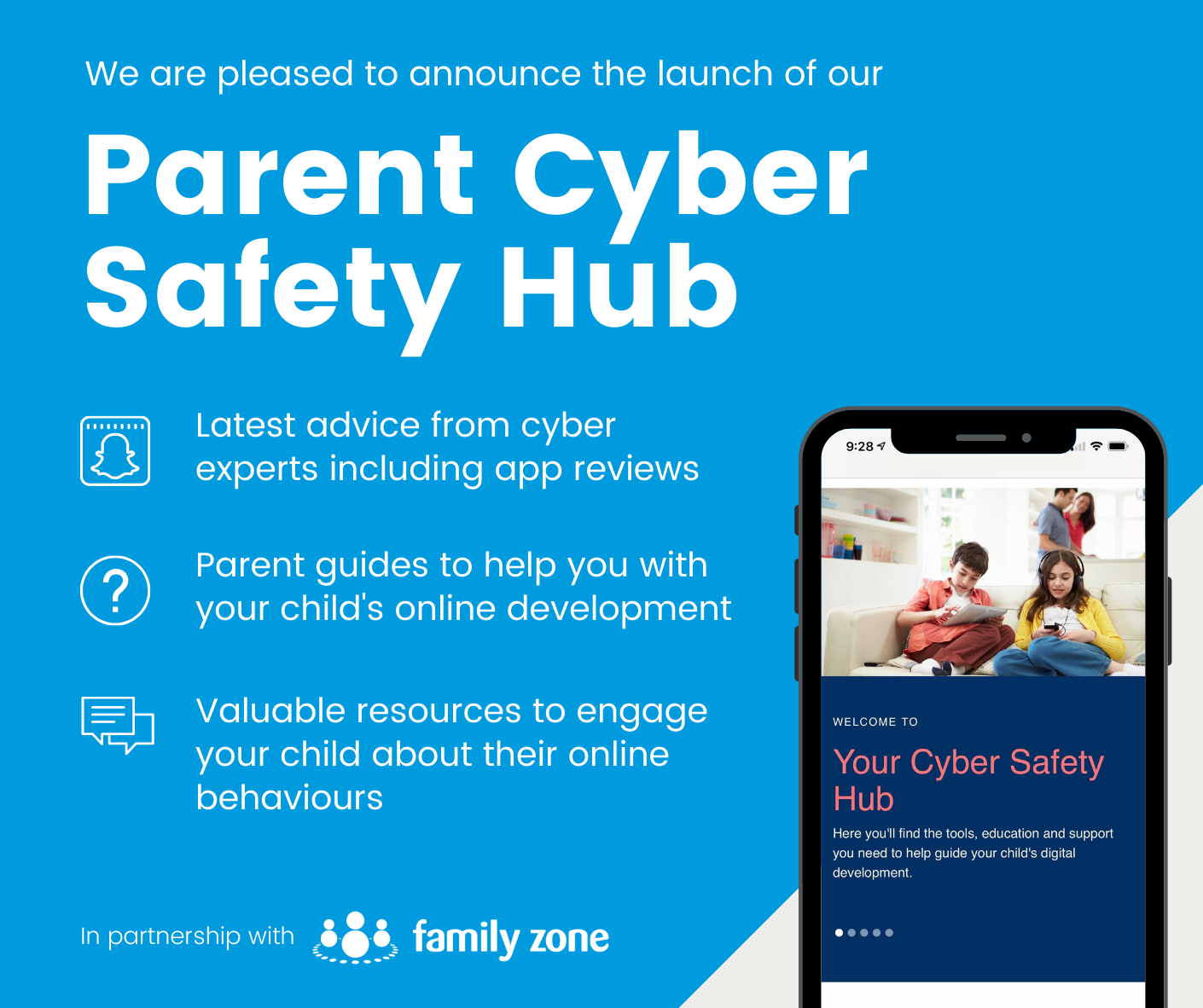Cyber Safety

Check out our Cyber Safety Hub
We are delighted to introduce you to a new resource made available to you through our partnership with Family Zone - our new school Cyber Safety Hub.
As you may already be aware, our partnership provides your family with access to the Family Zone tools to use at home with your children if you wish. The purpose of the Cyber Safety Hub is to complement those tools with practical guidance and information to further support you in engaging with your children in their digital development. These tools and resources also allow the school and parent body to work together on creating a holistic approach to guiding each student's online journey.
You can access the Cyber Safety Hub using the link below:
https://johnxxiii.cybersafetyhub.com.au/
About the Parent Cyber Safety Hub
The Cyber Safety Hub includes resources to help your family better understand the different Family Zone tools available to you and how to use them, plus access to regular cyber safety events to help you stay informed about the latest digital trends.
Also, the Cyber Safety Hub provides expert advice from leading cyber experts, ySafe, on the most pertinent issues and frequently asked questions around platforms like TikTok, Fortnite, Instagram, and more. There are app reviews with age and safety recommendations, along with a range of guides to help ensure healthy boundaries around screen-time & gaming, plus step-by-step instructions for using parental controls and filtering out inappropriate content.
We are very excited to be able to offer you this level of expertise and support. We look forward to working closely with you as we develop the cyber safety conversation within our school community.
Calling all middle-school parents: It may be now or never to set screen-time limits
If you have a middle-schooler who loves their devices - and don’t they all? - you need to be across new findings that show that right now is the best time to set limits on screen-time, especially when it comes to bedtime use.
By now you’re probably aware of the strong link between bedtime device use and disrupted sleep. It’s an established fact for every age group (mum and dad’s very much included!).
Part of the reason is that the blue light emitted from our screens interferes with the release of sleep hormone melatonin.
But the impact of screens on sleep is much more complicated than that. (If it weren’t, a cheap pair of orange-tinted glasses could solve the problem.)
The content kids consume is a factor too - especially exciting or suspenseful videos and interactive games, which can send the brain into overdrive exactly when it should be powering down for restful sleep.
Stimulating content at bedtime can send the brain into overdrive, and make falling asleep harder
And the problem has special urgency when it comes to children aged 12-14, according to a six-month study published last month in the journal Sleep Health.
Researchers found that kids in this age group who used devices before bedtime not only experienced disrupted sleep - but that their bad sleep led to even more scrolling, tapping and viewing. This “bidirectional” effect practically guaranteed that these kids’ poor sleep habits would degenerate further over time.
The impact of disrupted sleep has been shown to be wide-ranging, and can include chronic inflammation and obesity. But the effect on academic performance and the ability to sustain attention is especially evident - and devastating - for young teens.
The National Sleep Foundation, along with the American Academy of Pediatrics and virtually every other child health organisation on the planet, recommends eliminating all device use an hour before bedtime - for all age groups.
Children in this age group who used devices before bedtime not only experienced disrupted sleep - but that their bad sleep led to even more scrolling, tapping and viewing.
But for kids in the middle-school years, setting bedtime limits is particularly urgent. Why? Simply because that’s the time when parents have the best chance “to put down some ground rules and consistently enforce them,” notes lead study author Heather Leonard.
Imposing limits on older teens can range from difficult to near-impossible. But with children aged 12-14, Leonard advises, parents have a golden opportunity “to build good habits and establish healthy sleep hygiene early on that they’ll carry forward with them.”
Reference: https://www.familyzone.com/anz/families/blog/middle-school-parents-screen-time-limits



